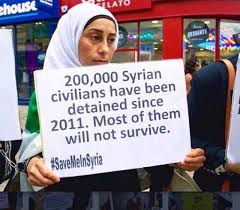the documentation of violations should be considered as a stand-alone mechanism of transitional justice
July 23, 2018

Brookings Center has provided an excellent outlook of transitional justice in Syria, entitled: Writing Atrocities: Syrian Civil Society and Transitional Justice. Below is a summary of this guide.
***
Through documentation, Syrian civil society actors are transforming the role of transitional justice in ongoing conflict by reclaiming the centrality of victims in justice processes. Syrian documentation of violations has strengthened the centrality of local actors, even if the way in which transitional justice is pursued remains largely internationalized.
This paper argues that in raging conflicts such as in Syria, the documentation of violations should be considered as a stand-alone mechanism of transitional justice and as a means to lay the foundation for a variety of future post-conflict justice goals. This is for two principal reasons. First, documentation is a powerful form of non-violent resistance to ongoing, violent conflict. It constitutes a crucial pursuit of justice without having to wait for a political transition to take place or for conflict to subside. Documentation resists the hijacking of narratives and the destruction of evidence, history, and memory. It maintains and protects a database containing material crucial for eventual prosecutions and truth commissions. In doing so, documentation keeps the issue of justice in Syria alive, even if it is sidelined or altogether dismissed in official peace talks. This makes documentation, in and of itself, a form of resistance.
Furthermore, not only does documentation lay an essential foundation for future transitional justice mechanisms to take place, but it also helps to ensure a victim led transitional justice process. Ironically, transitional justice often overlooks ways to meaningfully address the expectations of victims. Instead, its processes are predominantly shaped by elites, whose priorities are not always aligned with those of victims. Those directly affected by past and ongoing atrocities thus find themselves struggling to stake their claim to a transitional justice that adequately addresses their needs and expectations. Citizen journalism and open source information, however, have significantly strengthened the comprehensive nature of documentation, as well as its accessibility. This has enhanced prospects for a more legitimate, organic, victim-led, and civil society-led transitional justice.
While documentation is often viewed as a stepping-stone toward the implementation of transitional justice mechanisms, it is a function of the pursuit Executive Summary of transitional justice in its own right. One of the features of Syrian documentation is its agency: the involvement of countless activists, lawyers, ordinary citizens, victims, and eyewitnesses in ensuring that the truth about violations is recorded and exposed. Writing atrocities is, in and of itself, a healing process, as it ensures that victimization is acknowledged, recorded, and remembered. Given the resource constraints that Syrian civil society continuously faces, donors should direct more funds toward documentation efforts, not least as they provide an effective means for victim-led transitional justice.
Concerns regarding international actors’ weak efforts to meaningfully involve Syrian civil society in shaping decisions regarding transitional justice must be taken seriously. By encouraging the contribution of Syrian civil society actors to policymaking, accountability initiatives in Syria will be more achievable and conducive to the justice desires of Syrian society. They must be engaged as leading partners, and not mere recipients of transitional justice policies. International organizations should, therefore, make a meaningful effort to bring local activists to the table, not just to voice their concerns and exchange information, but to shape policy as well.
